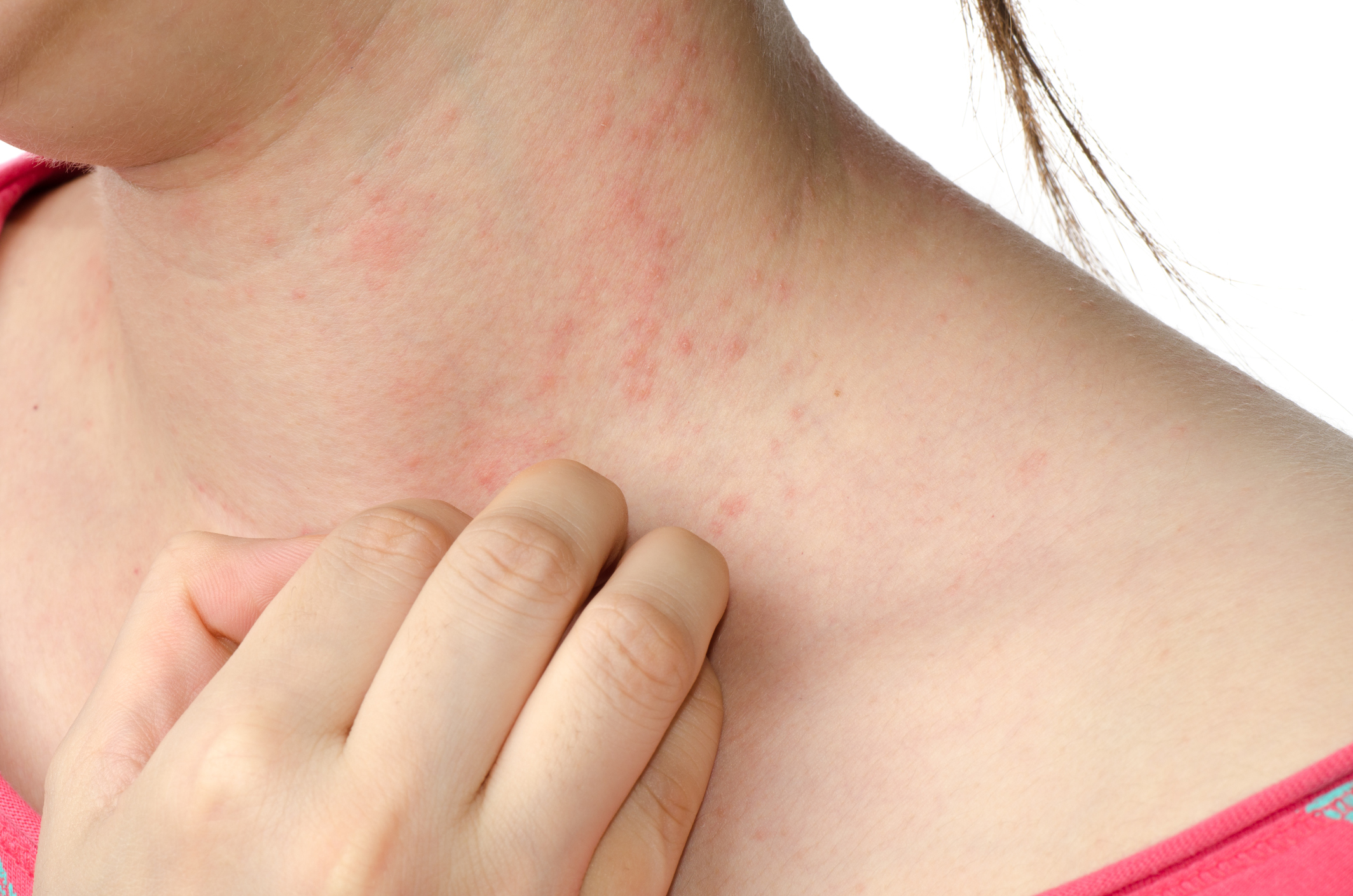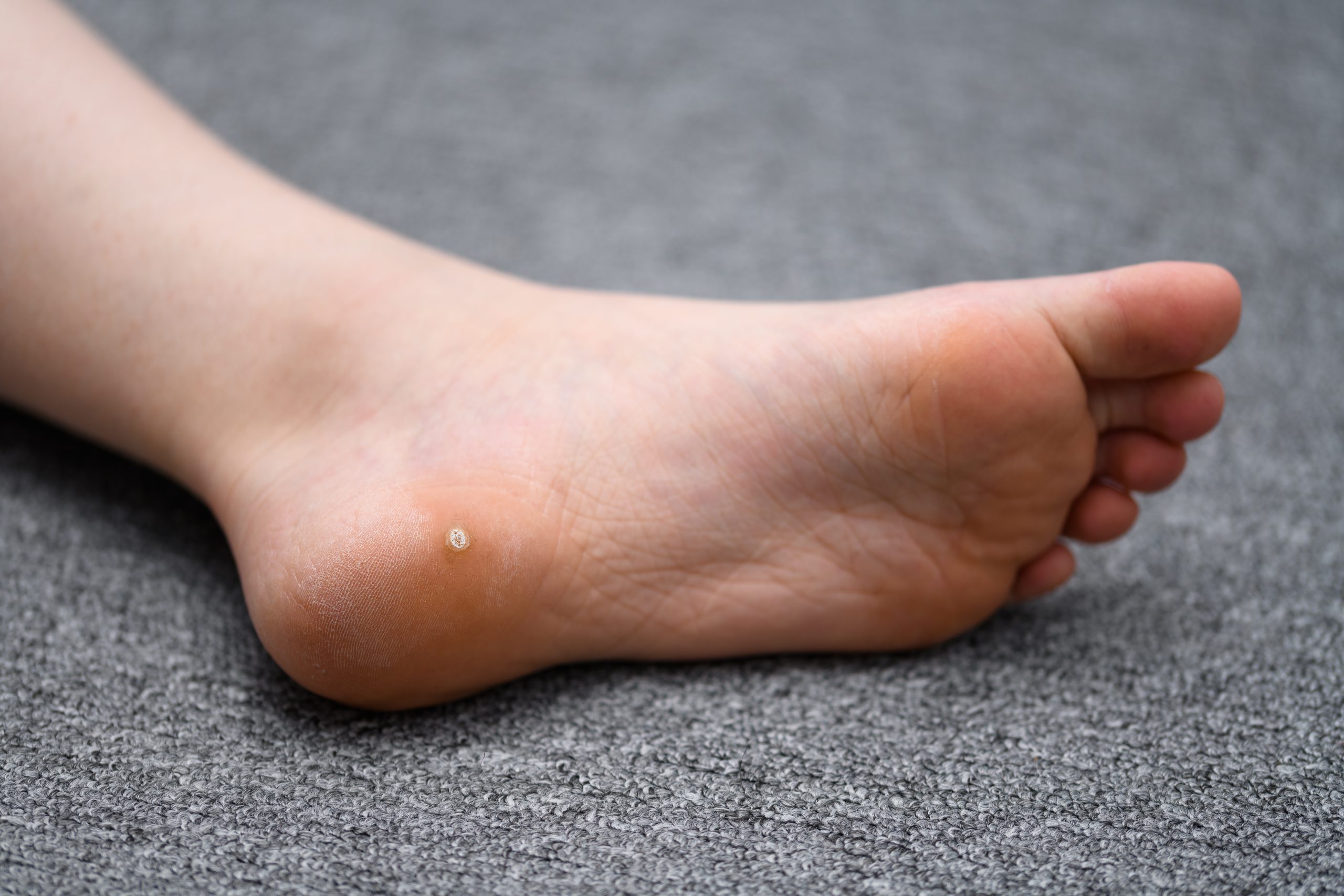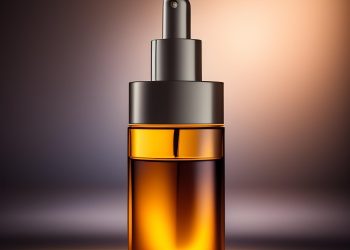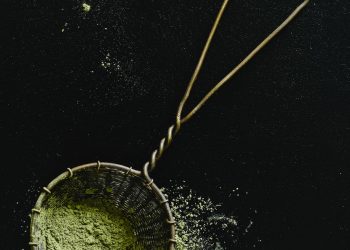Eczema is a skin condition characterized by itchy, red, and dry skin. Also known as atopic dermatitis, it causes inflammation of the skin. [1]
It is not easy to get rid of eczema as the disease is incurable. It can happen due to certain genes, an overactive immune system, or some other skin defects.
The symptoms of eczema include red, patchy skin on the hands, neck, wrists, ankles, and eyelids. These patches may get thick and hard if you scratch them.
Eczema is a painful condition that may also be accompanied by allergic conditions like hay fever or asthma.
This chronic skin condition is quite common among infants, and the severity of flair-ups may reduce with maturity.
There’s no identified cure for eczema, but some natural home remedies can help reduce discomfort and prevent future flares.
This article looks into some effective home remedies that may help you to get rid of eczema symptoms naturally.
How to Get Rid of Eczema: 11 Natural Home Remedies
1. Colloidal Oatmeal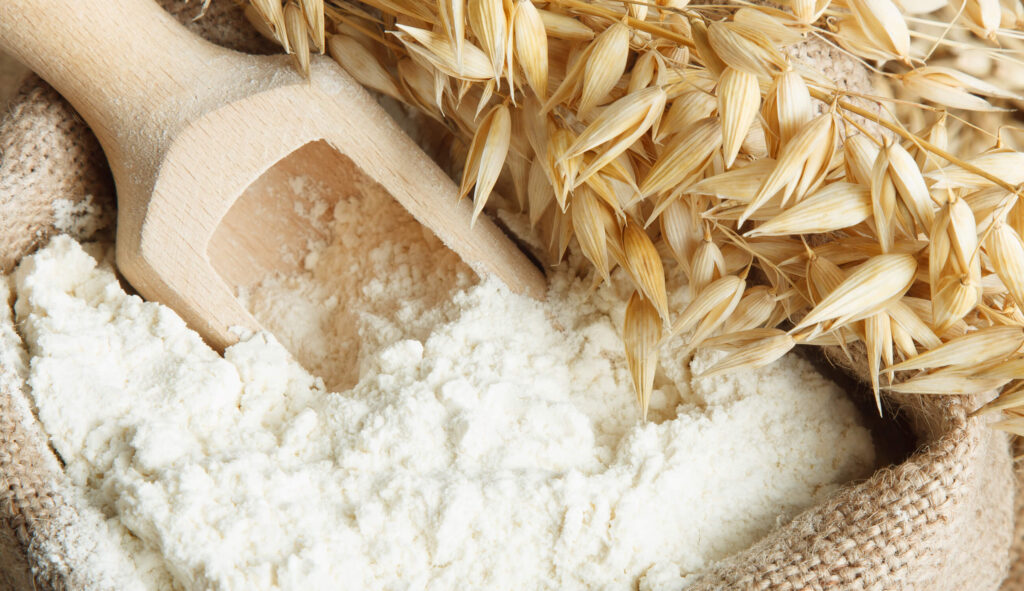
Colloidal oatmeal or Avena sativa is made from grounded oats. They are boiled to extract the skin-healing components.
According to a study published in the Dermatology Research and Practice, colloidal oatmeal can ease the irritation and itching caused by eczema. [2]
The research also shows that it can protect skin by maintaining the surface pH.
The colloidal oatmeal lotion has antioxidant and anti-inflammatory properties, which help soothe skin dryness, roughness, scaling, and itching you may experience due to eczema. [3]
You can soak yourself in a warm oatmeal bath to reduce the symptoms of eczema.
2. Aloe Vera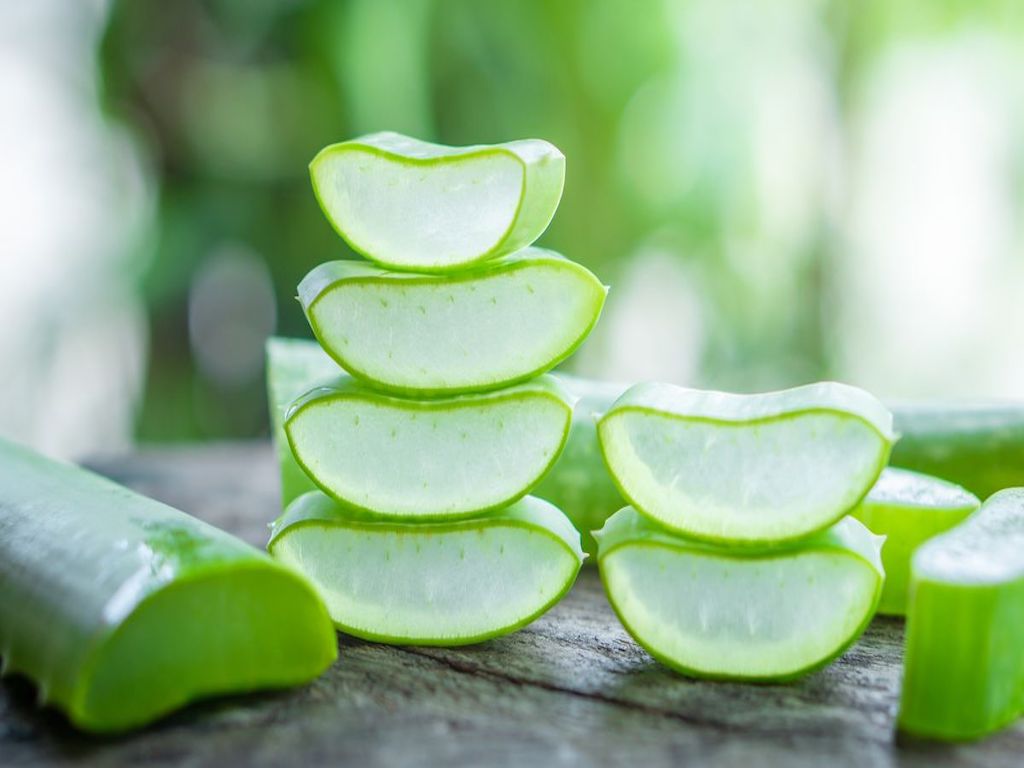
For centuries, people have been using aloe vera gel to soothe different types of skin problems, including eczema.
A 2015 study was published in the Journal of Traditional and Complementary Medicine. It shows that aloe vera gel contains antimicrobial, antibacterial, wound-healing, and immune-boosting properties. [4]
These properties can treat infections and irritations that may occur due to dry, cracked skin.
Another research published in 2015 shows that aloe vera gel can moisturize the skin affected by eczema and promotes faster healing. [5]
You can directly apply the gel to the affected area. You can also mix it with a vitamin E capsule for better results.
3. Witch Hazel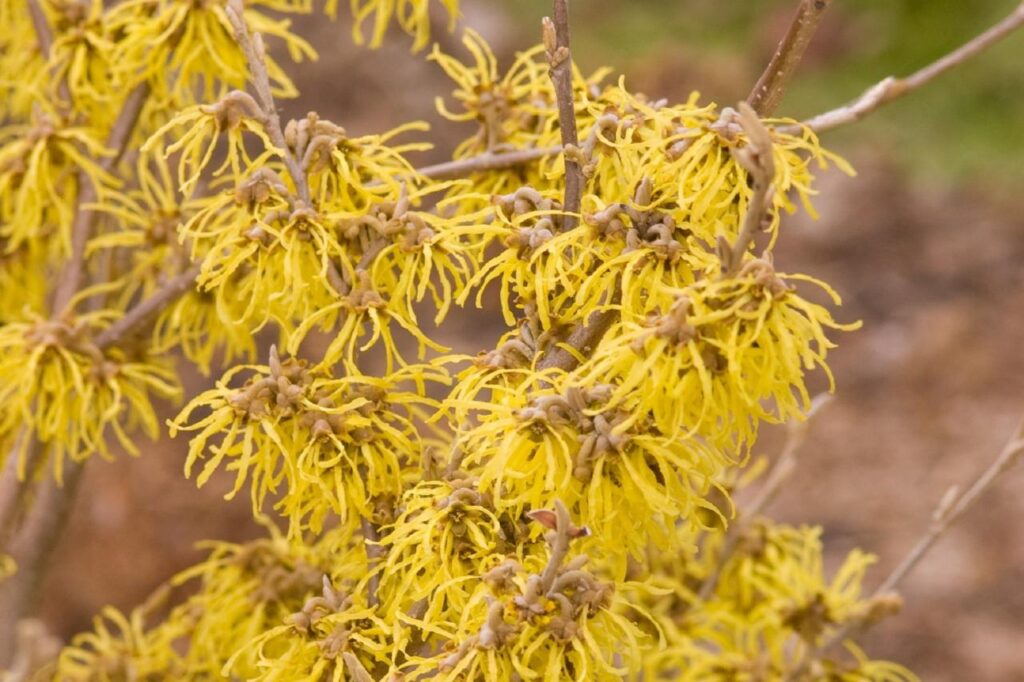
Witch hazel may help prevent the rash from oozing during a flare, thanks to its antioxidant and anti-inflammatory properties.
A study published in 2003 confirms its anti-inflammatory effects. It’s because witch hazel contains catechins and gallic acid. [6]
You can directly apply it to the eczema-prone area with a cotton pad. Use alcohol-free witch hazel to avoid dryness.
4. Licorice Root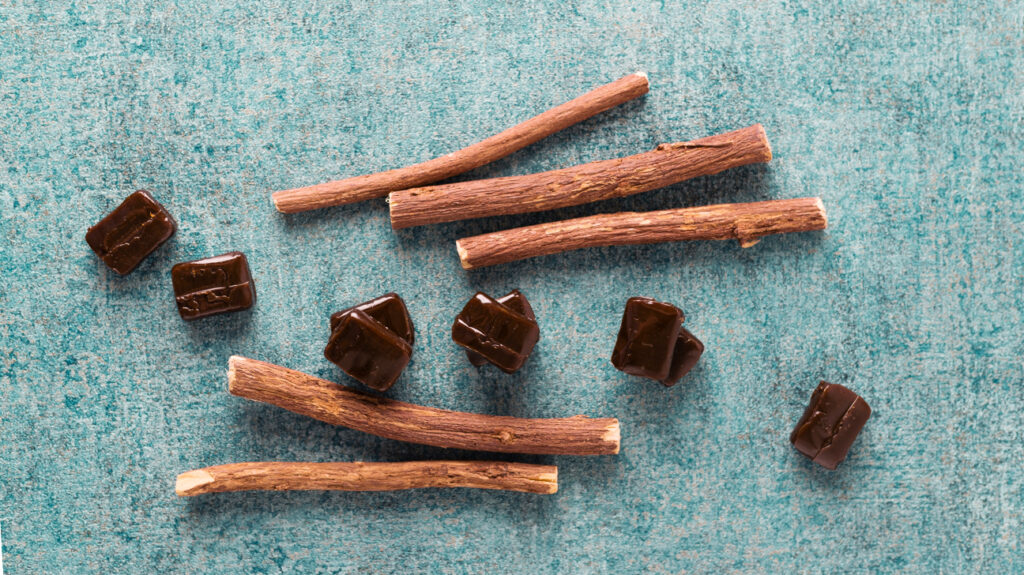
Licorice root comes from the leafy herbal plant named Glycyrrhiza glabra. It contains numerous medicinal properties that may help reduce the symptoms of eczema.
Licorice root contains a component named glycyrrhizin. Its anti-inflammatory effect can soothe the irritations and itching caused by eczema.
In a clinical trial published in The Journal of Dermatological Treatment, the licorice treatment soothed the eczema symptoms in more than 100 patients. [7]
You can mix the licorice root extract with coconut oil and apply it directly to the affected area.
5. Sunflower Oil
This non-volatile oil is extracted from the seeds of the sunflower. This oil is rich in vitamin E, which helps improve skin health.
Research published in 2015 states that sunflower oil has excellent anti-inflammatory effects on eczema-affected skin. [8]
Another study shows that sunflower oil can protect the outer layer of the skin, keeping the bacteria out. [9]
You can directly apply this oil to the skin. It can also hydrate your skin and reduce itchiness.
6. Coconut Oil
Coconut oil is considered the perfect moisturizer for those who have eczema. It is a good source of medium-chain fatty acids that can add moisture to your skin.
In a randomized trial published in the International Journal of Dermatology, virgin coconut oil was applied to eczema-affected children. [10]
After eight weeks, those who used coconut oil showed improvement in their condition compared to those who used mineral oil. [10]
Besides, coconut oil has antibacterial properties that can prevent any infection due to eczema. [11]
For the best results, apply virgin or cold-pressed coconut oil to the skin.
7. Honey
Honey has been used for healing wounds for centuries, thanks to its natural anti-inflammatory and antibacterial components.
A 2015 study confirms the wound healing and immune-boosting functions of honey. It also states that honey can help your body to fight infections. [12]
The antibacterial agents of honey can help treat various skin ailments, including burns, wounds, infections, eczema, etc. [13]
Applying honey, especially manuka honey to the skin will prevent infections while nourishing the skin.
8. Dead Sea Salt
If you have severe inflammation due to eczema, a dead sea salt bath may soothe the discomfort and reduce the redness of the skin.
Salt is popular for its healing power. Having a dead sea salt bath can improve the skin barrier function, hydrate your skin, and reduce roughness. [14]
However, do not overheat the bathwater as eczema flare can be worse if exposed to low and high temperatures.
9. Evening Primrose Oil
Evening primrose oil originates from the seeds of the evening primrose plant. The oil is commonly used to treat several skin conditions such as acne, psoriasis, eczema, and many more.
This essential oil is rich in omega-6 fatty acids and gamma-linolenic acid that help reduce the inflammation due to eczema.
A study published in 2008 concludes that evening primrose oil is an effective and safe treatment for eczema. [15]
However, further studies are required since researchers across the world got different results.
10. Dietary Changes
Eczema is an inflammatory skin disorder. Since certain foods can cause or reduce inflammation, some changes in your regular diet may help prevent eczema flares.
Some probiotics and foods rich in omega-3 fatty acids such as fish, cod liver oil, leafy vegetables, flaxseed oil, etc. may help reduce eczema symptoms.
In a 2010 study, researchers found that introducing fish to a diet of children by the age of nine could reduce the risk of developing eczema. [16]
Another 2016 study shows that regular consumption of probiotics can prevent eczema in infants. [17]
If you have an eczema outbreak, consider taking a probiotic supplement regularly.
Besides, you need to avoid some foods that may cause allergies during eczema. Foods that may trigger eczema are eggs, milk, soy, peanuts, and wheat.
11. Relaxation Method
According to 2012 research, emotional stress plays an important role in triggering eczema. [18]
Although the exact reason is not clear, it’s highly recommended to cope with stress to reduce the adverse effects of eczema.
Several relaxation methods may help you deal with stress including, yoga, meditation, Thai-chi, hypnosis, cognitive behavioral therapy, etc.
When to Visit a Dermatologist
Eczema is a non-curable skin condition. Certain lifestyle changes and natural home remedies may help you control the eczema flare and some other symptoms. But, if you see the condition gets worse, you need to visit a dermatologist for proper treatment.
Ask for emergency medical attention if you notice the following symptoms:
- You have difficulties in sleeping and doing other activities due to itchiness.
- The inflammation does not respond after one week of treatment.
- You develop numerous painful, pus-filled blisters over the existing patches of eczema.
- If you are exposed to anyone with a viral skin disease when you already have eczema.
- Your eczema spreads to the other parts of the body.
- Your condition is getting worse, including a short interval during flare-ups.
Conclusion
It’s not possible to get rid of eczema symptoms completely, but you can manage most of its symptoms using the proper treatment.
It’s important to bring some changes in your diet plan and lifestyle to prevent the eczema flare-up. You can also try these above mentioned home remedies to ease some of the symptoms.
Always avoid using perfumed soaps, shampoos, wool clothing, and tight-fit outfits to avoid irritation due to eczema.
Whether you use over-the-counter treatment or home remedies, it’s better to check with a doctor to determine which treatment will be more effective and help improve the quality of your life.
Read Next: 8 Safe Home Remedies for Baby Acne
